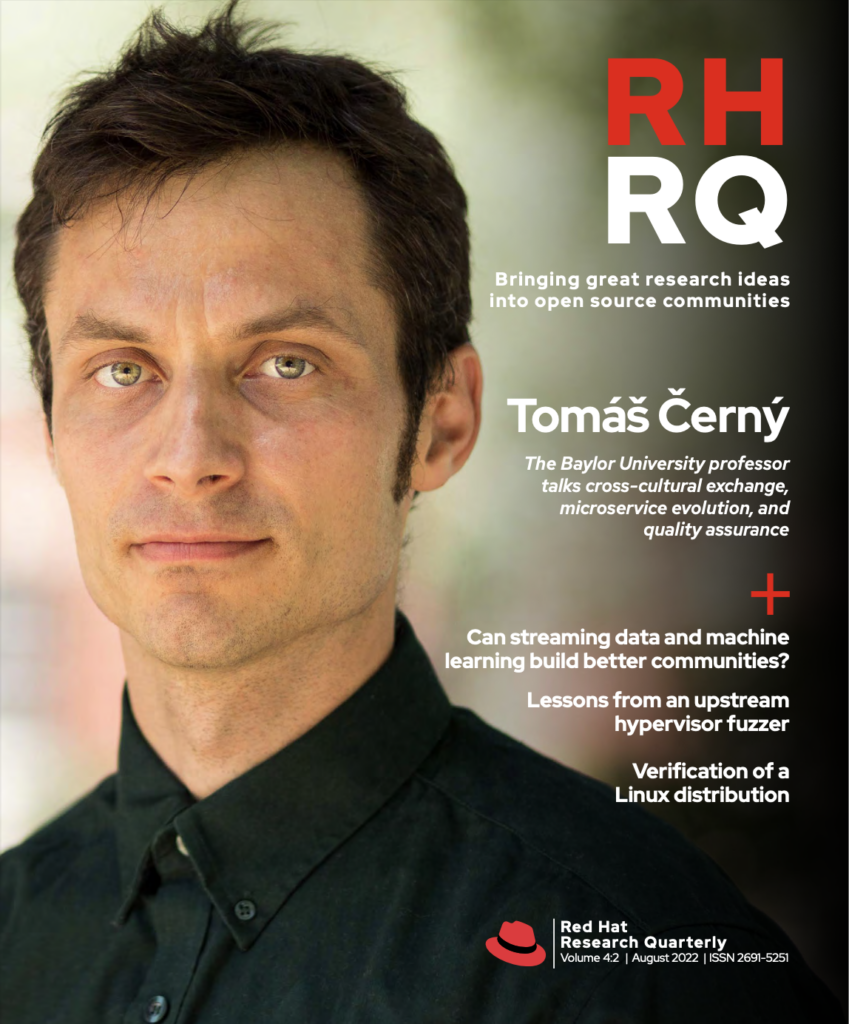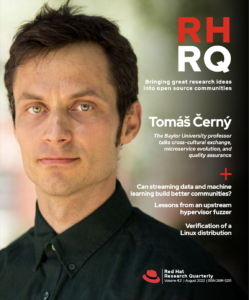Daniel Bristot de Oliveira’s research in real-time systems led to the inclusion of the RTLA in Linux 5.17.
Red Hat Research’s Dr. Daniel Bristot de Oliveira presented the Real-Time Linux Analysis Toolset (RTLA) at the Red Hat Open Source Summit held June 21- 24, 2022, virtually and in Austin, TX, USA.
Daniel’s research was featured in a series of articles for RHRQ: “A thread model for the real-time Linux kernel” (2:3), “Efficient runtime verification for the Linux kernel” (2:4), “Demystifying real-time Linux scheduling latency” (3:1).
The result of several years of research, the RTLA was one of the most significant changes in the release of Linux 5.17. Over the last decade, Daniel has been exploring methods to improve the analysis of the real-time properties of Linux. His research explores the tracing features of Linux to derive fine-grained properties of the kernel, overcoming a known limitation of the usage of black-box testing by developers while increasing confidence in Linux usage on safety-critical real-time systems.
While the black-box method provides an overview of the system, it fails to provide a root-cause analysis for unexpected values. Developers must use kernel trace features to debug these cases, requiring extensive knowledge about the system and fastidious tracing setup and breakdown. The RTLA is a user-space tool that addresses these challenges. Part of the Linux kernel toolset, RTLA provides a benchmark-like interface for in-kernel tracers that extract meaningful information about the timing capabilities of the system by simulating typical real-time workloads. RTLA also facilitates root-cause analysis of timing failures via tracing, automating the most common setup while enabling advanced tracing features in a single tool.
Such analysis tools are becoming essential to the development of Linux as a whole as PREEMPT_RT becomes an integral part of the operating system, meaning that more new users—or busy developers—will have to dedicate time to the analysis of Linux as a real- time operating system (RTOS). RTLA gives them an easy-to-use solution that doesn’t require detailed knowledge of the system.
The initial implementation was substantial enough to place Daniel among the top 20 contributors of the 5.17 kernel release, and further developments are expected. RTLA was designed with extensibility in mind. It is expected to be extended with other theoretical analysis tools, serving as the starting point for researchers and practitioners to develop tracing-based analysis tools.
Daniel was also a keynote speaker at the 17th Workshop on Virtualization in High- Performance Cloud Computing, held in Hamburg, Germany, from May 29- June 2, 2022. His paper “Operating system noise in the Linux kernel,” co-authored with Daniel Casini and Tommaso Cucinotta, was recently accepted for publication by IEEE Transactions on Computers for a special issue on real-time systems.



